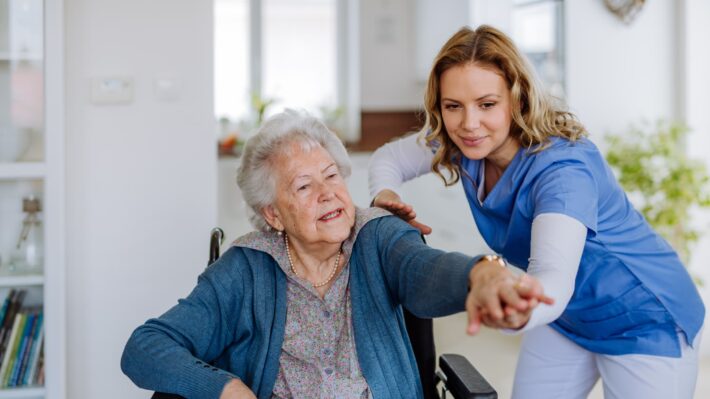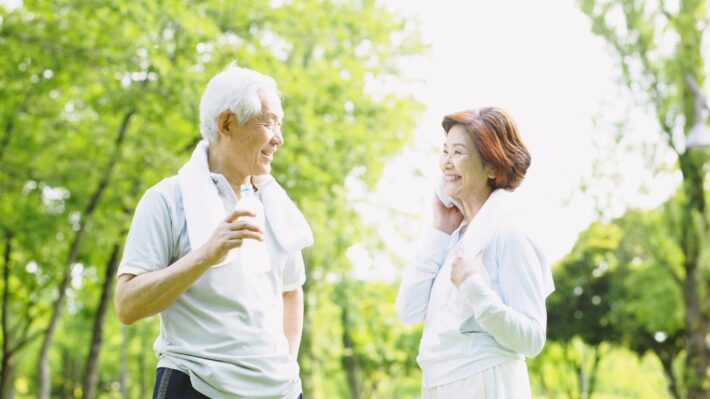Recognizing Signs of Heat Exhaustion in Seniors: A Caregiver’s Guide

As summer temperatures go up, it’s important for caregivers to be able to recognize signs of heat exhaustion in seniors. Seniors are more vulnerable to heat due to aging factors like reduced sweating, slower blood circulation, and chronic conditions. This guide helps you detect warning signs of heat exhaustion and take necessary action.
Why seniors are at higher risk
- Reduced thermoregulation: A study was done showing seniors redistribute less blood flow to their skin during heat stress, which limits their ability to cool down.
- Chronic illnesses & medications: Heart disease, kidney issues, diuretics, antihypertensives, and anticholinergics can disrupt heat regulation.
- Dehydration risk: As we age, our thirst response diminishes. Because of this, seniors are less able to realize when they’re thirsty and often don’t hydrate enough.
Common signs & symptoms
Based on CDC definitions, here’s what to watch for:
- Nausea
- Dizziness
- Weakness
- Headaches
- Muscle cramping
- Shortness of breath
- Unusually heavy sweating

Prevention tips
- Regular hydration: Encourage drinking water or drinks with electrolyte throughout the day.
- Cool environment: Ensure access to air conditioning or fans. Cover windows with shade or blinds.
- Review medication: Talk to healthcare providers about any medication they are taking that may impact heat sensitivity.
- Timing of activities: Schedule outdoor activities early morning or late evening when temperatures are cooler.
- Clothing: Dress seniors in lightweight, breathable, light-colored fabrics and wide-brimmed hats for outdoor time.
First‑aid steps for caregivers
If you start to notice these symptoms:
- Move to a cooler space – Somewhere with shade, indoor AC, or a fan-cooled room
- Loosen or remove clothing – Lessen layers to allow cooling
- Rehydrate – Offer water or electrolyte drinks. Avoid drinks with liquid or alcohol
- Cool externally – Apply damp towels to neck, armpits, and/or wrists
- Rest and monitor – Keep an eye on their breathing and pulse. Be ready to call emergency services if their condition worsens.
When to call 911
Seek immediate medical attention if any of the following occur:
- Confusion, fainting, or unresponsiveness
- Vomiting that prevents taking fluids
- Core temperature is rising or symptoms aren’t improving within 30 minutes
- Signs of heat stroke (dry skin, high temperature, rapid strong pulse)
Heat stroke requires emergency treatment.
Stay safe this summer – We’re here to help
Recognizing signs of heat exhaustion in seniors can save lives. By knowing the signs, applying cooling strategies, and planning ahead, caregivers provide essential protection and peace of mind during hot summer months.
If you are caring for a loved one at home or concerned about their safety during the hotter months, our experienced team can help. From daily wellness checks to hydration support, we offer compassionate in-home care tailored to their needs.
Learn more about how our caregivers can help your loved one stay safe and cared for this summer.



